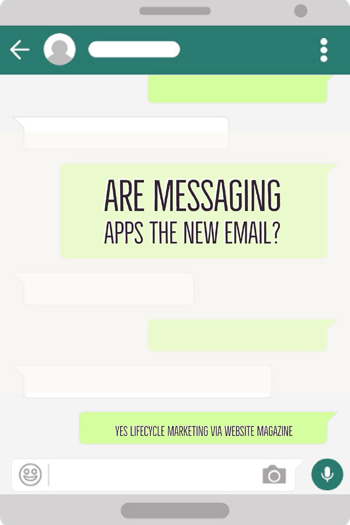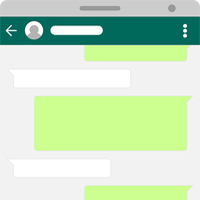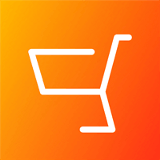Are Messaging Apps the New Email?

Messaging apps and other innovative technologies like AR and VR are the Wild West for marketers, a tempting uncharted territory with infinite possibilities. Retailers are seeking out innovation, too -- as artificial intelligence evolves and customer service bots become more popular, we're starting to see things like shipping confirmations being sent over Facebook Messenger.
But could messaging apps be "the next email?" Probably not.
While messaging apps and similar new technologies have their time and place, email still holds a crucial role in the marketing process. Don't let these new, untested channels distract you from tried-and-true email. From being personable to its ease and accessibility, email will be here for the long-haul. Here's why.
Email is personal.
Email provides the long-form content that will always be needed, as it would be nearly impossible to send a visually rich digital newsletter or a promotional offer through a messaging app. These text-centric apps are good for communicating one-on-one but don't allow for the rich digital communication that email does.
This long-form content makes it easy for both consumers and brands to get personal. On the consumer side, for example, a customer may have signed up to receive newsletters from a favorite brand and spotted the perfect item for her best friend in one. With email, it's a piece of cake to forward this message and share relevant information in general with friends and family. While one could easily screenshot a message or a tweet, it wouldn't have the same personal effect.
Brands can easily make emails personal, as well, in a way that messaging apps can't quite deliver. For example, brands can implement personalized campaigns based on behavioral triggers or tailor subject lines and copy to reflect a consumer's individual interest. Consumers appreciate when brands can make their lives easier, too. By considering basic subscriber data, marketers can also provide relevant product selections or special promotions to loyal customers via email. Making personal suggestions can lead to lasting relationships. 
Email is for everyone.
With 2.6 billion people having at least one account, it is one of the most widely accepted forms of contact. This gives marketers a direct line to all audiences, from an 86-year-old grandmother to a 19-year-old student.
A person's email address is their digital hub, providing a central location for everything from work memos to newsletters and online promotions from favorite brands. Today, our lives integrate seamlessly with our inbox, whether it's receiving a calendar invite from a coworker or printing a coupon from a promotional email, it's all in one spot. Even multichannel engagement leads back to email, because chances are any platform being used is linked to an email address. When customers sign up with for accounts via Facebook, for example, it's still linked with an email account.
In the end, everything from utility bills and e-coupons to airline miles comes back to the inbox. For now, the same can't be said about messaging apps and other new technology and likely won't be anytime soon.
Marketers are committed.
Although new technologies are tempting and should be experimented with, email will always be a proven approach with the ability to track ROI, and marketers will continue to invest in it as a result. Email can be easily adapted into any marketing campaign, whereas other technologies (VR, AR and even messaging apps) may not necessarily be a good fit for the brand. Marketers should only pursue these technologies if they see the brand value associate with it.
Sixty-eight percent of retailers report that email marketing will receive an increase in marketing budget this year (according to our internal research). Put simply, email is a channel that works and still allows marketers to take some risk in their campaigns. It can continuously be reinvigorated, too. Marketers can easily layer data from their own CRM with third-party data provider to personalize their email efforts. Tailoring email subject lines and body copy to the needs of the customer will help refresh stalemate opens and low conversion rates.
Marketers are constantly innovating, and new technologies are an exciting way to do so. However, at the end of the day, they need to find what works best for their audience. Email gets the job done and builds strong relationships, as a result. Email's not going anywhere anytime soon.
About the Author
Steve True is the director of sales strategy at Yes Lifecycle Marketing, a marketing services provider giving marketers an integrated and optimized approach for delivering relevant messages from a single vendor.









